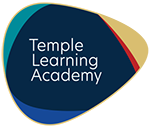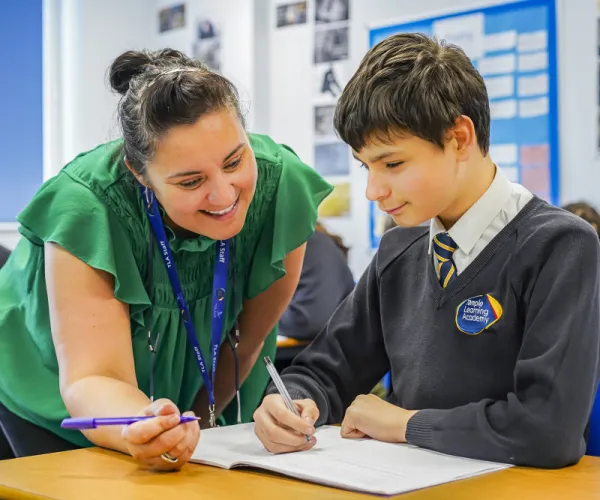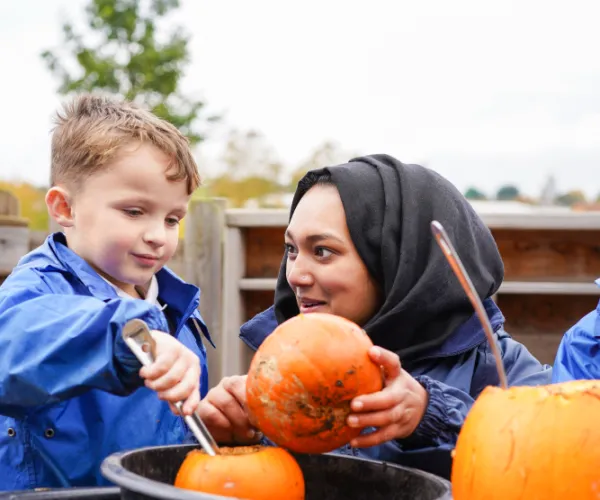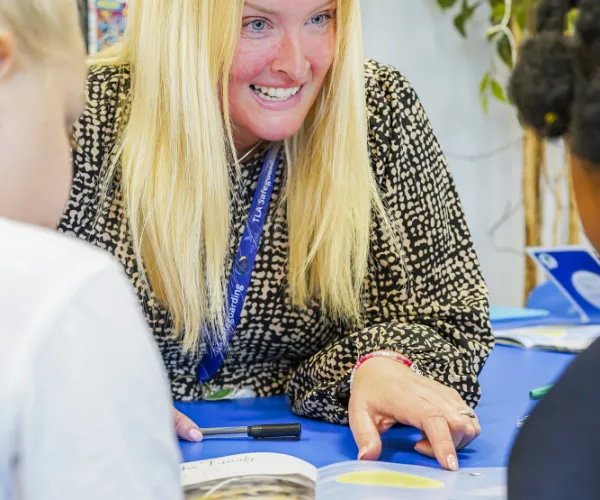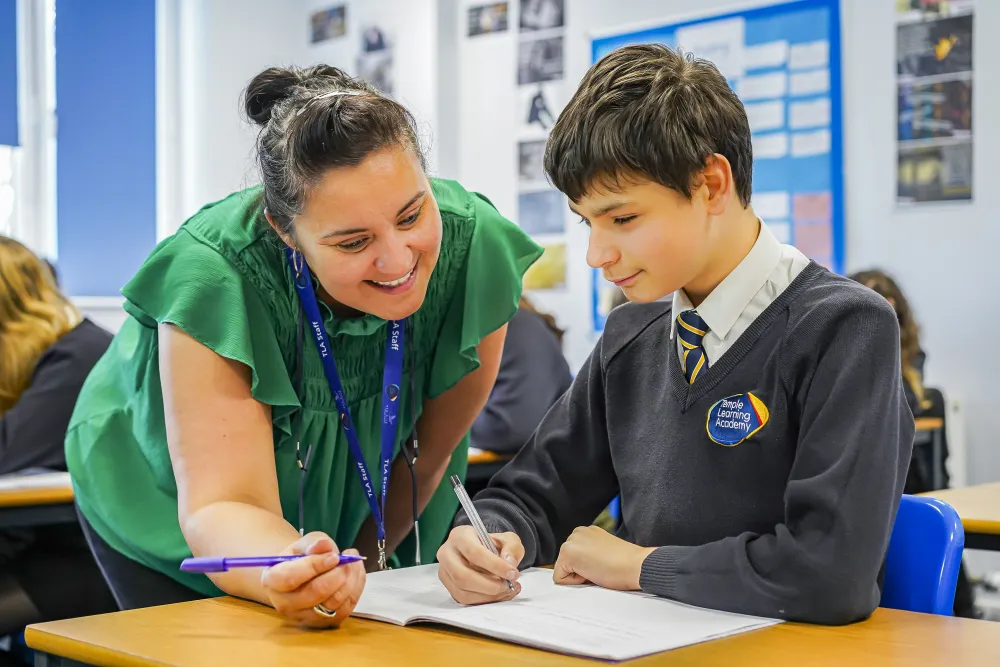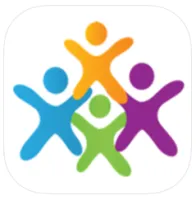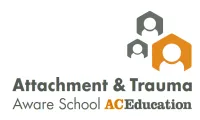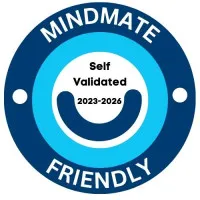At Temple Learning Academy, Religious Education is taught as a stand alone subject at Key Stage 3. Students study the key aspects of the major world faiths, as well as looking at bigger questions of morality and responsibilities, applying and discussing key religious teaching to a variety of social and moral contexts. There is a strong emphasis on students applying not only knowledge of Religion (Theology), but also considering how religion impacts on our thinking (Philosophy) and on our lives (Social Sciences). We ask big questions including; What is religion?, Should we keep our promises?, Why is Christianity so Diverse – is it dying or thriving?, and What do Buddhists believe?
Year 7
In Year 7 students, begin to develop their journey of Religious Education by studying the Islamic World and the life and believes of a person who follows the Islamic faith. Students will progress their Religious understanding of Religion by focusing on Christianity and the believes and practices of a person who follows the Christian faith. Moreover, students will continue to broaden their Religious Education by looking at Judaism as a religion with the final topic being a comparison between all the different religions covered so far.
Year 8
In year 8 the students pick up from where they left off and start by studying the Buddhist religion and the main believes and practices. Year 8 furthers a students’ Religious understanding as they examine more interesting topics such as the Hindu and Sikh religions retrospectively. This will provide the students with an overall balance of the major world-wide religions and give the students a broad understanding of the similarities and differences between them. Year 8 journey continues with a focus on more philosophy and ethical topics such as Where does religion fit in our society? How does religion affect our Ethical understanding? and How does religion affect our Ethical understanding? These topics challenge the students as they will put into practice what they have learnt about religion and how this affects every day decisions.
Year 9
In year 9, the students carry on with the theme of Philosophy and Ethics by starting the year on Medical Ethics and how life is impacted on by peoples religious and ethical believes. This leads to debates over warfare and the right and wrongs with it. While, the year moves to the students studying about family and religious believes around prejudice and persecution. Also, how our lives are impacted on those around us and how our relationships can have a massive affect on our lives and why it is important to develop positive and healthy relationships. With the students finishing the year on studying the penal system in our country and if it meets the needs as a society.
At the end of KS3, students can choose whether to continue to study Religious Education into KS4 and gain a GCSE qualification. For those that do not continue to study Religious Education to gain a qualification there will be a compulsory one hour a week for the students’ to further their understanding in a subject called ‘modern studies’.
